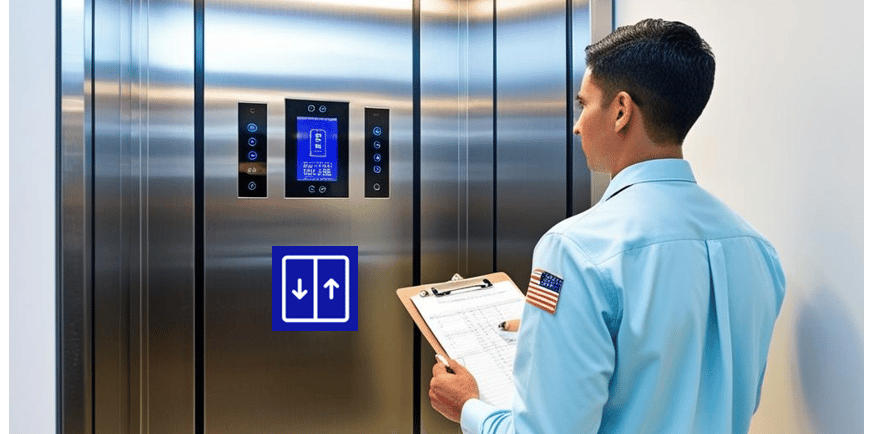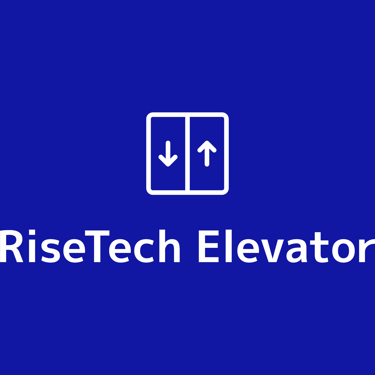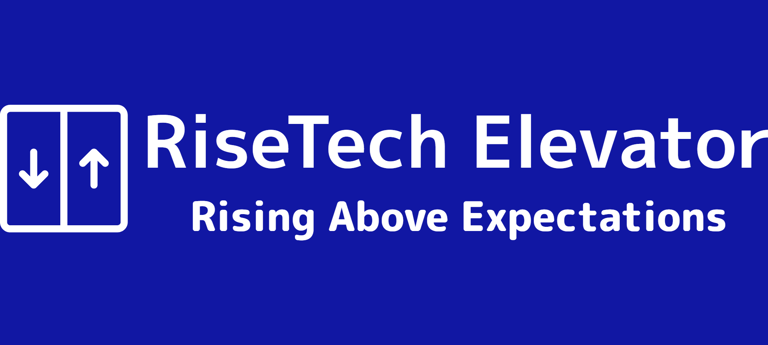Understanding Elevator Inspections in Texas: Annual vs. Five-Year Requirements
Elevator safety is paramount in ensuring the well-being of building occupants and visitors. In Texas, the Department of Licensing and Regulation (TDLR) mandates specific inspection schedules to uphold safety standards. This blog delves into the distinctions between annual (1-year) and five-year elevator inspections, detailing their scope, responsible parties, and the consequences of non-compliance.
6/2/20255 min read


Annual Elevator Inspections (Category 1)
The annual inspection is a vital requirement for all elevators operating in Texas. Conducted every year, this assessment focuses on evaluating the overall operational efficiency and safety of the elevator systems. During the annual inspection, licensed inspectors examine both mechanical and electrical components to ensure they meet state and local standards. Building owners are responsible for hiring a qualified inspector who can perform these evaluations thoroughly.
Failing to comply with the annual inspection requirement can lead to significant risks, including safety hazards for users and potential equipment failure. Moreover, building owners may face penalties, including fines, if their elevators do not undergo timely inspections.
Purpose: To verify that all elevator systems operate safely and adhere to current codes.
Frequency: Every 12 months.
Applicable Equipment: All passenger elevators, escalators, chairlifts, and moving walks.
Witnessed By: A Qualified Elevator Inspector (QEI) registered with TDLR.
Conducted By: A Qualified Elevator Mechanic .
Inspection Focus:
Safety features (emergency brakes, door sensors).
Ride performance and leveling accuracy.
Communication systems (emergency phones).
Structural integrity and general maintenance.
Post-Inspection Requirements:
Inspectors must provide a detailed report to the building owner within five days of the inspection.
Building owners are responsible for correcting any cited violations or securing a contract for their correction within 30 days.
A Certificate of Compliance must be obtained by submitting the inspection report and a $20 fee per unit to TDLR.
Five-Year Elevator Inspections (Category 5)
In comparison, the five-year inspection encompasses a more in-depth analysis of the elevator system. This evaluation covers a broader range of components and utilities, such as the cabling, hoist mechanism, and safety devices, which may not be thoroughly assessed during the annual inspection. The intent behind this extended timeframe is to ensure comprehensive safety and compliance over a major period of use.
As with the annual inspection, it is the responsibility of the property owners to ensure that a qualified inspector conducts the five-year evaluation. Non-compliance with this inspection could result in severe safety risks and potential legal consequences, further emphasizing the importance of adhering to TDLR guidelines.
Purpose: To perform rigorous testing of safety mechanisms under load conditions, ensuring long-term operational safety.
Frequency: Every five years.
Applicable Equipment: Electric (traction) elevators and roped hydraulic elevators equipped with overspeed governors and car safeties.
Conducted By: A Qualified Elevator Inspector (QEI) registered with TDLR.
Inspection Focus:
Full-load or 125% load testing of safety devices.
Verification of overspeed governors and car safeties.
Assessment of suspension means and related components.
Note: Hydraulic elevators without safeties and chair lifts are exempt from this five-year testing requirement.
Importance of Regular Inspections
Regular inspections are crucial for:
Ensuring passenger safety and preventing accidents.
Maintaining compliance with state regulations.
Identifying and addressing wear and tear before they escalate into major issues.
Avoiding potential legal liabilities and financial penalties.
Handling Deficiencies
Upon receiving an inspection report with cited violations:
Building owners have 30 days to correct the issues or enter into a contract for their correction.
If more time is needed, owners can apply for a waiver or delay from TDLR.
Failure to address violations can lead to repeat violations, which may result in enforcement actions.
Consequences of Non-Compliance
Both annual and five-year elevator inspections are critical for maintaining the overall safety of elevator operations in Texas. Non-compliance or delayed inspections not only jeopardize user safety but also expose owners to considerable risks, including hefty fines and potential litigation in case of incidents caused by unsafe elevators. Addressing deficiencies early during inspections can significantly reduce future liabilities and enhance the reputation of property management services.
In conclusion, understanding the distinctions between annual and five-year elevator inspections is essential for all building owners and property managers in Texas. By adhering to the requirements set forth by the TDLR, property owners can ensure the safety and compliance of their elevator systems, preventing potential risks and penalties associated with negligence. Regular inspections, both annual and five-year, serve as a best practice in maintaining the integrity of these vital systems.
Risks of Non-Compliance
Neglecting mandated inspections or failing to address deficiencies can result in:
Financial Penalties: Fines ranging from $1,000 to $5,000 per unit, depending on the severity and recurrence of violations.
Operational Shutdowns: TDLR may order the disconnection of power or lockout of equipment posing imminent danger or if inspections are significantly overdue.
Legal Liabilities: In the event of accidents due to non-compliance, building owners may face lawsuits and increased insurance premiums.
Consequences of Late Inspections
Timely submission of inspection reports is essential:
Late Fees: A $10 fee is assessed for every 30-day period beyond the required 60-day submission window.
Certificate Delays: Delays in obtaining the Certificate of Compliance can affect building operations and tenant satisfaction.
In Summary and Next Steps:
Adhering to Texas's elevator inspection requirements is not just a legal obligation but a commitment to safety and operational excellence. Regular inspections, prompt correction of deficiencies, and timely submissions ensure the safety of all building occupants and protect owners from potential liabilities.
RiseTech Elevator: Your Trusted Partner for Elevator Inspections
At RiseTech, we understand the complexities of elevator inspections and the importance of adhering to Texas Department of Licensing and Regulation (TDLR) guidelines. Our team comprises both Qualified Elevator Inspectors (QEIs) and licensed elevator mechanics, enabling us to provide a full spectrum of inspection and maintenance services.
Understanding Conflict of Interest Regulations
TDLR regulations stipulate that a registered elevator inspector must not inspect equipment if they or their employer have a financial or personal conflict of interest related to that equipment. This includes situations where the inspector's employer also has a contract to perform installations, maintenance, repairs, replacements, or alterations on the same equipment. Such conflicts can compromise the objectivity of inspections and are strictly prohibited.
How RiseTech Ensures Compliance and Objectivity
To maintain the highest standards of integrity and compliance:
Independent Inspections: When RiseTech1 serves as your elevator mechanic, we collaborate with independent, third-party QEIs to conduct the required inspections, ensuring no conflict of interest.
Comprehensive Services: Our dual expertise allows us to assist both contract and non-contract elevator owners. Whether you need inspection services, maintenance, or both, we tailor our offerings to meet your specific needs.
Prompt Deficiency Resolution: If an inspection uncovers any deficiencies, our team is prepared to provide a prompt service proposal and execute the necessary repairs, facilitating swift compliance and minimizing downtime.
Partner with RiseTech Elevator for Seamless Elevator Compliance
Navigating the requirements of elevator inspections can be challenging, but with RiseTech, you have a reliable partner committed to safety, compliance, and efficiency. Our integrated approach ensures that all aspects of your elevator systems are thoroughly evaluated and maintained, providing peace of mind for building owners and occupants alike.
For more information or to schedule an inspection, contact RiseTech Elevator today.
📚 Sources
Texas Department of Licensing and Regulation (TDLR) – Elevator and Escalator Safety Program
Comprehensive information on elevator regulations, licensing, and safety standards in Texas.
https://www.tdlr.texas.gov/elevator/TDLR – Elevator Safety and Licensing Frequently Asked Questions (FAQs)
Detailed answers to common questions about elevator inspections, compliance, and procedures.
https://www.tdlr.texas.gov/elevator/elefaq.htmTDLR – Elevator Inspectors Penalties and Sanctions
Information on penalties related to elevator inspections, including conflicts of interest and other violations.
https://www.tdlr.texas.gov/enforcement/elevinspsanctions.htmTDLR – Elevator and Escalator Safety Laws and Rules
Access to the Texas Health and Safety Code Chapter 754 and Texas Administrative Code Chapter 74, governing elevator safety.
https://www.tdlr.texas.gov/elevator/laws-rules.htmTDLR – Elevator Inspection Forms and Guidelines
Official forms and instructions for conducting and reporting elevator inspections in Texas.
https://www.tdlr.texas.gov/elevator/eleforms.htmTDLR – Obtaining an Elevator/Escalator Certificate of Compliance
Guidelines on the process and requirements for obtaining a Certificate of Compliance after inspections.
https://www.tdlr.texas.gov/elevator/forms/ELE201N-Obtaining-a-Cert-of-Compliance.pdfTDLR – Elevator and Escalator Safety at a Glance
An overview document summarizing key points about elevator and escalator safety regulations in Texas.
https://www.tdlr.texas.gov/media/pdf/ELE%20at%20a%20Glance.pdf
RiseTech experts are seasoned professionals specializing in delivering reliable, efficient, and safety-focused solutions for elevator modernization projects, service, and repair backed by deep industry knowledge and a commitment to excellence.
CONTACT


